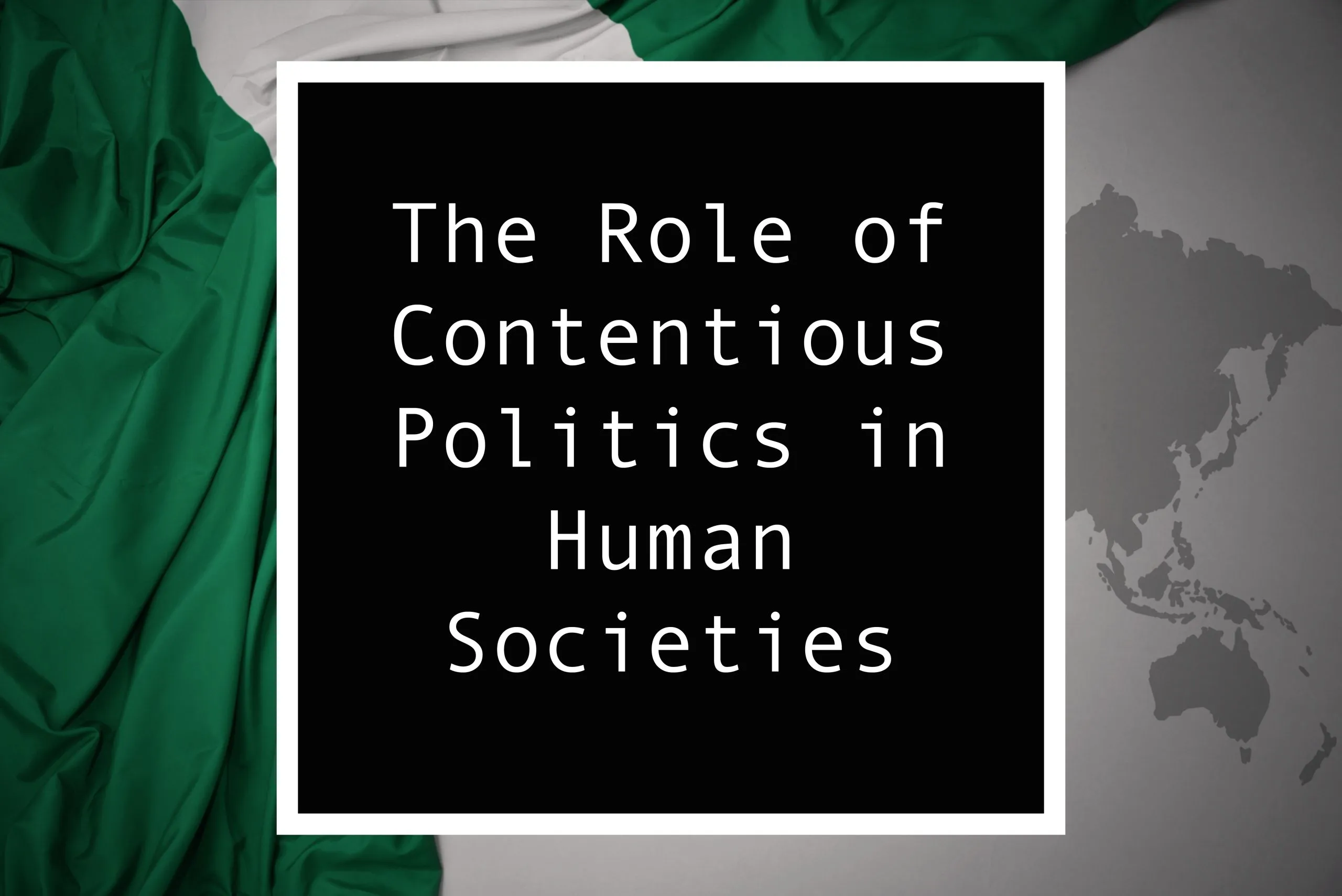According to Wikipedia, “Contentious politics is the use of disruptive techniques to make a political point, or to change government policy.” It is the means by which a class of society expresses aggravating displeasure about a government policy or unscrupulous decision, action or inaction—considered unfavorable, subsequently demanding for a change as regards it. For such, techniques employed have ranged from nonviolent, such as; strike action, protest and demonstrations, to violent; terrorism, revolution and civil wars overtime.
Decades ago, contentious politics was considered a threat to law and order, according to Samuel P. Huntington in his 1968 book Political Order in Changing Societies, but in modern politics especially under democratic government, contentious politics is considered integral and an important pillar of the society, at least in its nonviolent forms. However, some manifestation of contentious politics, such as; terrorism, are still considered extreme, dangerous and unacceptable in most societies.
Roles of Contentious politics in an Evolving Society
Society as we know it has continued to evolve continually over the course of history. Ideologies once considered indisputable and universally correct have been challenged and proved wrong time and again. This is the law of dialectics, according to social theorists Karl Marx and Friedrich Engels.
When a thesis; the status quo reality, that is most times considered indisputable and perceived as perfect is challenged by an antithesis; a contradiction to thesis, a synthesis, which is a compromise of both, is produced. The synthesis then becomes the thesis and the cycle occurs all over again; this is how society has evolved. An example of an antithesis is the Civil rights movement of 1954-1968 that stood against the Jim Crow laws of segregation and the disenfranchisement of people of color. A synthesis was achieved, as legislations were passed against racial segregation (civil rights act of 1964), to aid integration of black people into society—synthesis. A similar example is the anti-apartheid movement of the African National Movement of South Africa.
Techniques of contentious politics are more often than not, used to challenge thesis and propagate antithesis perspectives and ideologies. Therefore; contentious politics has played and is still playing focal roles over the years in shaping societies.
Forms of Contentious Politics
Techniques employed in contentious politics can be grouped into two: as in violent and nonviolent forms.
Peaceful protests and demonstrations are examples of nonviolent forms of contentious politics, while, more extreme and violent means include terrorism, civil wars and revolutions.
A sharp contrast exists between the civil rights movement and the anti-apartheid movement. While the civil rights movement was characterized by peaceful protests and mass walks, with hands lifted in the air, the anti-apartheid movement became violent with bombing and sabotaging of public service facilities although they were both against segregation due to color. Notwithstanding both saw considerable levels of success.
Contentious Politics in Nigeria
Nigeria with a population of over 180 million and a number of ethnic groups ranging over 300, is easily one of the most ethnically diverse nations on planet earth. The country, blessed with a lot of resources, has suffered fatal blows from the hands of inept leaders and barbarous despots. This has necessitated several phases of escalated disparity between government and different classes of society within the nation. Although currently practicing a democratic government, Nigeria has transitioned different stages of governance, from monarchical to colonization to dictatorship. For this very reason, Nigeria has been through different phases of contentious politics. From the ousting of the Alake of Ake—a despotic monarch who ruled his subjects with a great hegemony, ousted by the women of the town, to the most recent and most deadly Boko Haram religious sect.
Disparity stems from the diversity of mankind, and a need to push back, by some means, on unfavorable conditions for a particular class of people. Contentious politics have played functional roles in the modifications of the human societies, it always will.






